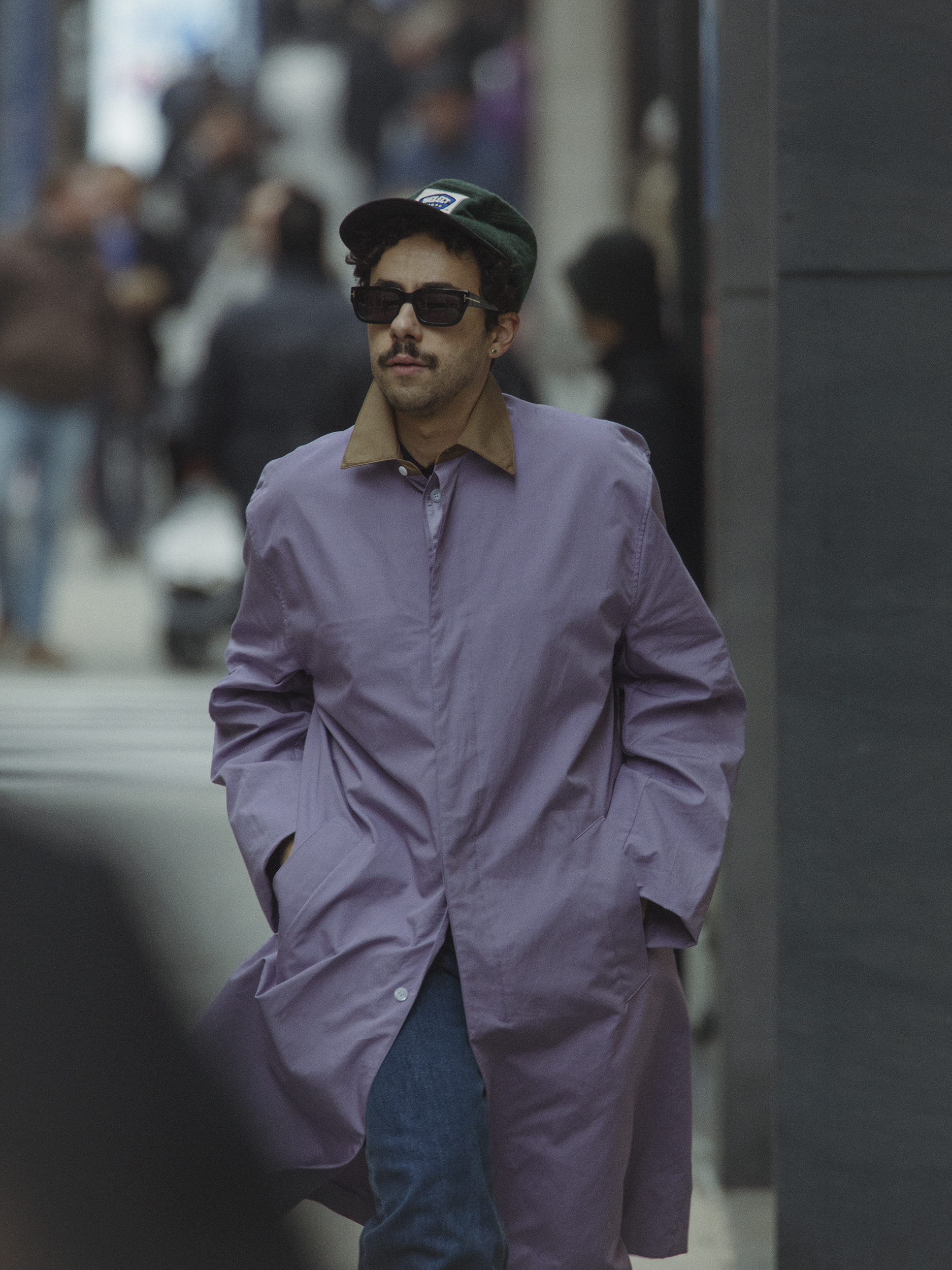Everyone should get the on-set experience of a fashion shoot at least once in their life. There are lots of high highs—particularly when good music is blasting, the photographer and the subject are in a groove, and everyone feels their hard work paying off in real-time. But with high highs come lulls, and sometimes you will find yourself just waiting—while the lighting gets readjusted for the fifth time or someone gets their sample-sized look taped onto their regular-sized body—and grazing endlessly on tummy-turning trail mix. By midday, usually, there’s a certain listlessness in the air, like any workplace. Yet, when I walked onto the VMAN set on a strangely muggy December afternoon in New York City, Ramy Youssef was running around dribbling a basketball, chipper as can be. Though the Egyptian-American multi-hyphenate looked a touch sleep-deprived from the press tour tied to his film debut in Yorgos Lanthimos’ latest epic Poor Things, his eyes literally sparkled when he introduced himself.
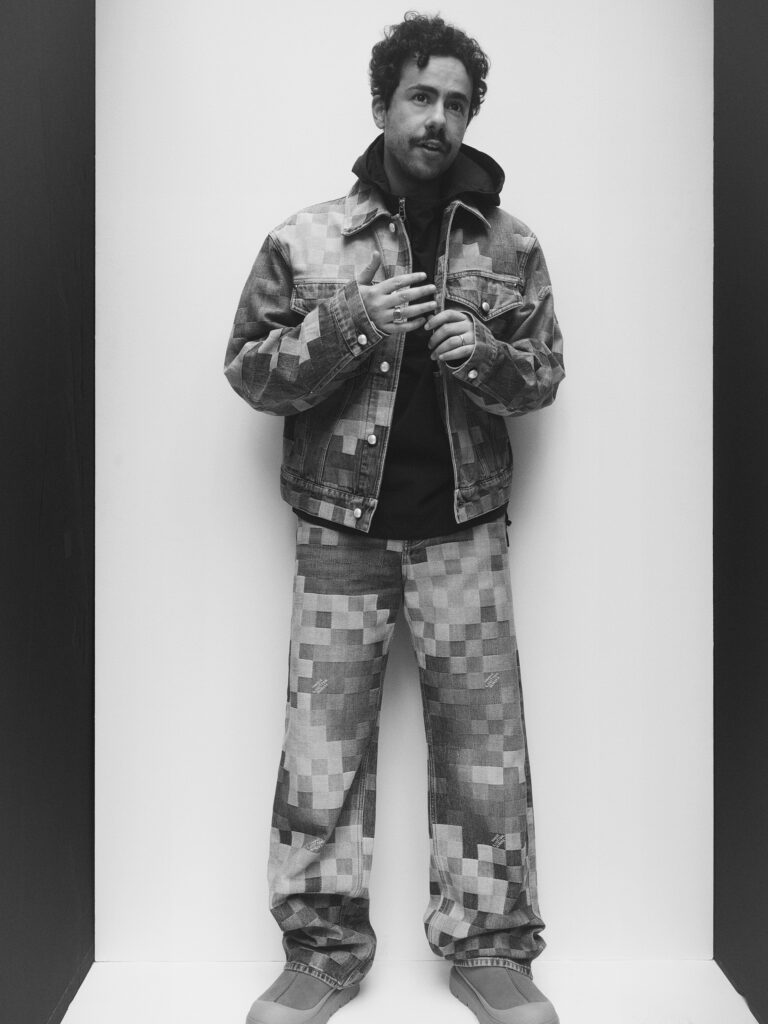
It was just over 10 years ago that Youssef moved to Los Angeles after landing a recurring role in the Nick at Nite family sitcom See Dad Run. Then, he was a “20-year-old with a stupidly big mop head of hair who didn’t know many people.” Since he had left his sketch comedy partners back in New York City, Youssef took up stand-up comedy to exercise his funny bone, the solitary practice of which had the unintended result of furthering his isolation. He jokes that the production team must have noticed and that their pity is probably why the See Dad Run writers’ room accepted his request to shadow them while they worked on new episodes. (It’s refreshing to know that, though the entertainment business is partial to nepotism, the good ol’ just-ask-and-be-ready method still works.) But Youssef explains that his ambitions were driven not by a need to socialize but by a pressure widely felt among first-generation Americans: the inevitability of settling into a ‘real job.’ “I never thought this would be my career,” he states, matter-of-factly. “I thought I would have to start my real life at some point. In my mind, I was like, ‘At 25, I’m gonna have to go to law school. So, let me do as much as possible before that terrible day comes.’” Fortunately for Youssef, that day never came.
In April of 2019, Youssef’s chaotically semi-autobiographical comedy series Ramy premiered on Hulu, for which he took home a Golden Globe Award that year and a Peabody Award in 2020. It is arguably the first show of its kind, offering the Egyptian-American perspective in a post-9/11 America and poking at expired notions of good Muslims vs. bad Muslims while still making room for salacious jokes. “Making the Ramy show has been helpful for my personal life [in] trying to step out of the good/bad paradigm,” Youssef notes. “And trying to be a bit more rooted in whether or not I’m acting out of love or out of fear.” In addition to the previously unexplored-by-mainstream-media themes within Ramy, the show’s sleek Arabic typography and Habibi Funk soundtrack were also wildly different from anything available streaming (even today).
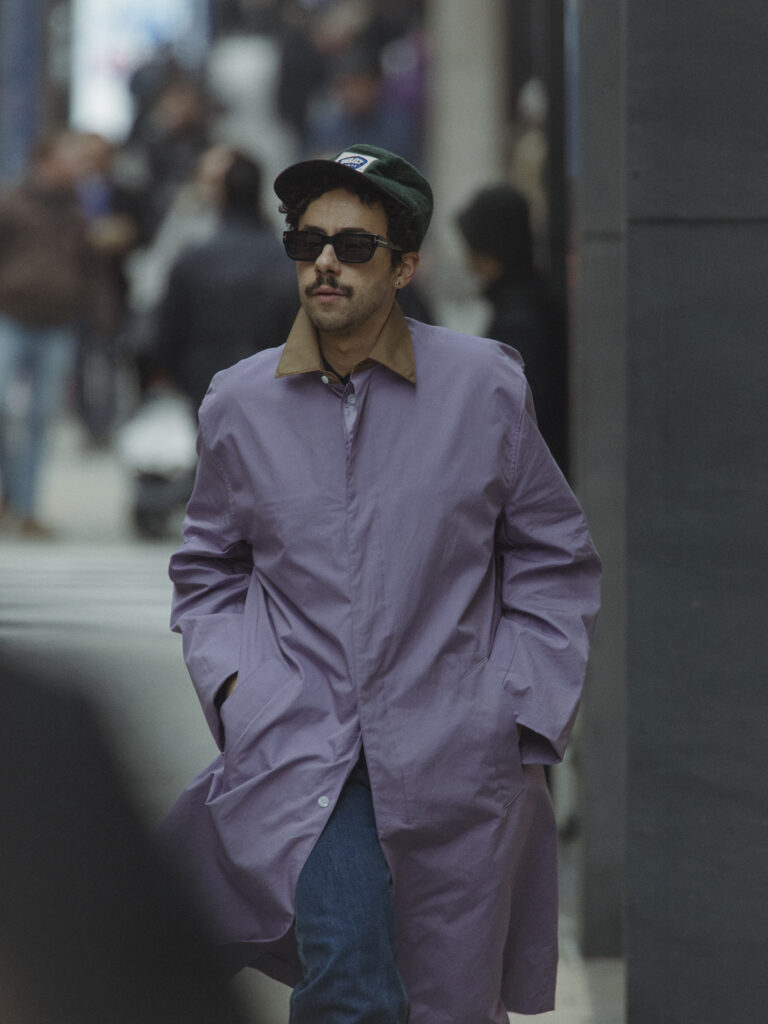
In its three seasons (and counting) Youssef has not only played Ramy’s titular role, but served as its creator, writer, executive producer, and, gradually, its main director. He’s maintained a respected stand-up career, partnering with HBO for his first comedy special, Ramy Youssef: Feelings, in 2019; he co-created the Netflix series Mo with Palestinian comedian Mohammed Amer (if Mo is not the first American TV series with a Palestinian refugee as its lead, it is certainly the first comedy to have the distinction); and he even directed an episode of The Bear which aired in June of last year, making him the first director outside of the show’s showrunners to do so. On December 8th, Poor Things premiered in theaters. For his first feature role, Youssef had the intimidating task of acting opposite Academy Award winner Emma Stone (whom he called the “funniest, fastest, smartest performer” he had ever worked with) and beside Academy Award nominees Willem Dafoe and Mark Ruffalo. He and the movie received rave reviews. One fan gushed that Youssef’s character was a prime example of a “real man.” Just one of many positive critiques.
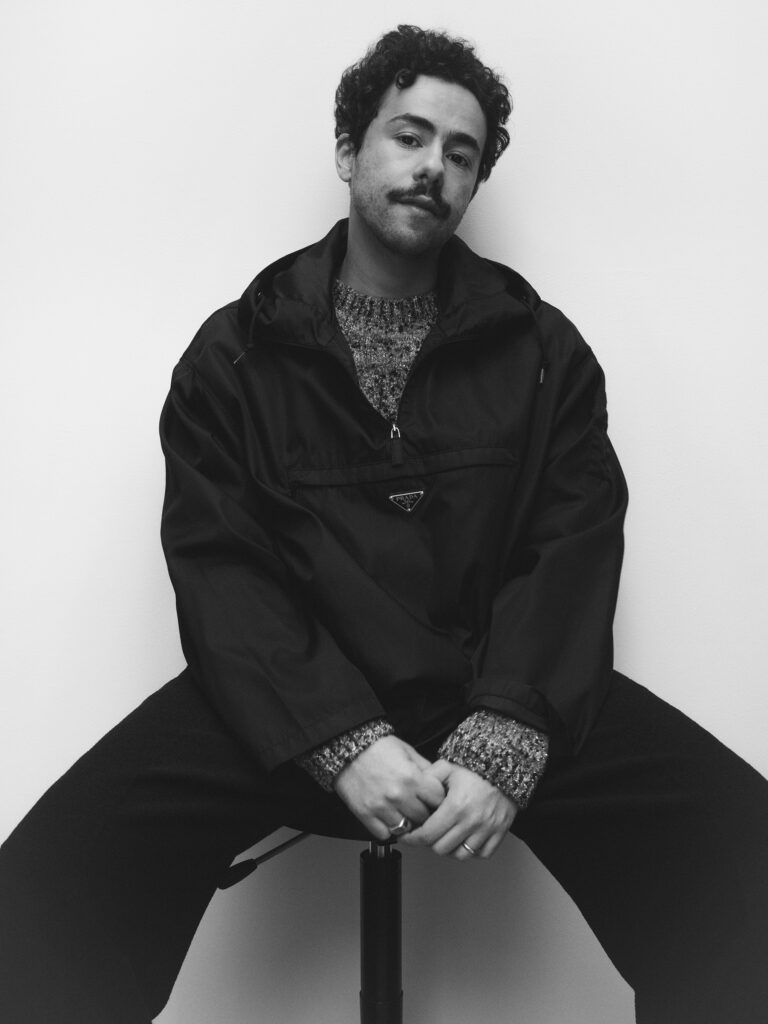
The same night Poor Things premiered in the U.S., Youssef performed stand-up at the Brooklyn Academy of Music. Though—or probably because—they locked everyone’s phone away in a cozy, tamper-proof straightjacket to limit filming, the audience was incredibly engaged and present. Among the audience members were, Zöe Kravitz, Cara Delevingne, Selena Gomez, and Taylor Swift. This is especially significant because Youssef announced ahead of time that 100% of the show’s proceeds would go to humanitarian relief in Gaza. Backstage, everyone was high on excitement and, even over Zoom two weeks later, Youssef is still reeling with gratitude. “Zöe is actually a great friend of mine,” he says. “And I just met Taylor [Swift]. We just got on. She’s really funny, a great banter-er… It was really cool of them to come out to the show.”
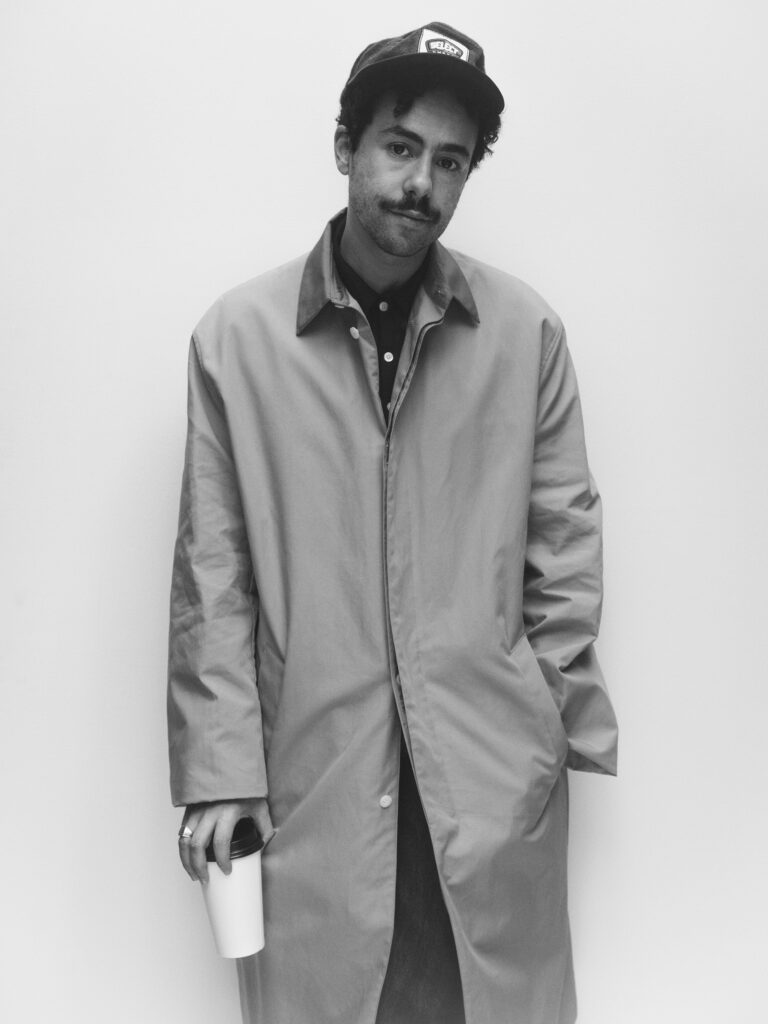
It is an insane time to be Ramy Youssef. Considering all of his projects (which also happen to include managing his production company Cairo Cowboy and working on a soon-to-be-available animated show titled #1 Happy Family USA), one might be surprised to find that Youssef’s social media presence is decidedly not focused on promo. Instead, the emerging A-lister has dedicated his page to Palestinian liberation. “Between making Mo and what we’ve done on Ramy in our third season—we did an episode in Palestine—this is not topical for a lot of us,” he says. “It is always top of mind and top of heart. I think that there is this longing to be part of the conversation instead of being talked about.” When I ask how he’s managing the lows of the news cycle as it pertains to the West Bank with the highs of what he confirmed to be “for sure the busiest time of [his] life,” he says he tries to lead with love and, as with many things, laughing with friends and family helps.
“Arab sarcasm is on a different level. That’s a stereotype most people don’t know about. Egyptian humor is world-class. You’re laughing, but you’re under attack,” he notes, feigning hurt. Though 2023 was a fruitful year for Youssef, who is only 32 years old, his parents still give him pointed yet playful jabs over choosing a creative pursuit. “I will admit that during the writers strike, my dad called and was like, ‘You still thinking about law school?’” he recounted, still in disbelief. The way things are going, though, it’s looking like Youssef will not be prepping for the bar anytime soon.
This story appears in the pages of VMAN 52: now available for purchase!
Photography Geordie Wood
Fashion John Colver
Makeup Abigail Hayden
Hair Andrea Grande-Capone
Producer Carly Hoff (Webber Represents)
Digital technician David Jaffe
Photo assistant Niko Magraros
Stylist assistant Ashley Hood
Location Highlight Studios
Discover More





